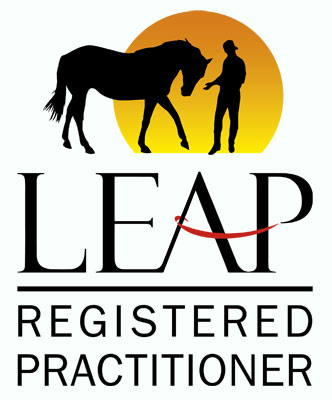
Blog
Learned and Genuine Helplessness: Untangling the complexity of knowing when you are really in need or think you are in need.
23 June 2015
Something very confusing seems to take place in our upbringing in modern day society which creates complications for us as adults: we get two feeling states fundamentally confused and back to front.
On the one hand, our real, genuine vulnerable-self gets ignored, denied and repressed. Often so deeply buried and masked with behaviours that it is unreachable to many of us for decades. On the other hand, we don’t hesitate to portray a state of helplessness in order to obtain support that we don’t actually need. And I’ll go one step further and say, which when we receive it, actually disables us, and paradoxically, removes us even further away from our genuine need for help.
What I call false helplessness or false vulnerability is when we overstate and exaggerate our sense of helplessness to the point that we ask and often expect others’ to meet our own needs. This is often also used to manipulate others into taking care of us and gives us a strange sense of power over them. This dynamic often plays out in unhealthy, co-dependent relationships, often within families and between couples, but can very much also be found in friendships and working relationships.
This dynamic can play out for years between people and within families and so becomes the norm for those involved. It also takes huge amounts of energy to uphold this falseness, as it does with any coping mechanism. And all of this comes at a cost to our real needs, which remain unmet whilst this pattern is being played out. This mask of vulnerability covers up our real needs and the times when we are truly vulnerable and in need of help from others become excruciatingly hard to bear.
Let me give some examples of false vulnerability:
You carry a deeply buried belief that you can’t cope with life, you tell yourself over and over again in a whole range of situations, that: “I can’t do that.” And you firmly believe it. Rooted in an upbringing where the parents affirmed you can’t do things and never encouraged you to try from an early age, you constantly seek others to look after you. In intimate relationships this is always your partner. They become like another parent for you, you rely on them perhaps for physical help, instead of challenging your own strength and stamina. You probably rely on them financially, again unable to believe in your own ability to support and provide for yourself. And at times when you are unwell, you fully expect them to nurse you and care for you, no matter what is going on for them, they become your parent/full-time private nurse. You ask them for more and more all the time, not just what you really need, but you stretch it out, into endless cups of tea, endless attention and endless bouts of sympathy with them saying: “Oh you can’t do that, let me”. After all, this means they love you, right..?
How often do you see couples behaving like this? Do you recognise yourself in this? Or your partner perhaps?
Another example:
At work, your lack of self-believe leads you to constantly seek your colleagues help with things, or worse, you neglect your responsibilities and expect others to pick up your slack. You don’t learn basic core skills like IT, or even using the photocopier, saying instead: “I’m a technophobe, I can’t help it!” And then manipulate others into doing parts of your workload for you. You never stretch yourself to even try and you portray yourself as being less able than you might actually be, and therefore in need of help and support.
A final example:
A person with a disability is further disabled by their parents attitude towards them and their true capabilities, so much so that they are reduced to becoming an utterly depended adult, incapable of looking after themselves as they have never been encouraged or shown how to. Basic fundamental life skills like cooking, personal care and money management have never been taught as the parents cannot believe for a moment that their “poor child” could cope. And so they disable their disabled child further. Now the disability is not the hindrance, but the added layer of incapacity through neglect and abuse of a person’s capacity to look after themselves becomes the disability. (This example is based on a woman with a mild learning disability, therefore leaving much scope for learning these vital life skills over time).
All of these scenarios involve learned helplessness, not actual, true vulnerability. False vulnerability also feels in a strange way somewhat comforting. It is almost a pleasurable feeling, I imagine because it does remind us at a deep level of when we were totally looked after and how wonderful that felt!
It also feels absolutely nothing like actual vulnerability. So, now let’s take a look at genuine helplessness or genuine vulnerability.
We are genuinely vulnerable when something out of the ordinary happens to us, an illness strikes, we have an accident or suffer a loss of some kind. We also feel vulnerable when we make significant changes in our lives and remove a pillar of support and security we are used to having, for example we may lose or give up our job, we may separate from our partner, or one of our children might leave home.
In these times, we don’t feel our usual robust self. Our facades splinter and fall away, albeit usually temporarily whilst we go through this experience. Our boundaries become more porous and we feel very fragile inside. This is when we do indeed need the support of others.
If we have had an accident for example and are incapacitated in some way physically or mentally, we are going to need both medical and family help to be able to look after ourselves. We may well need someone to physically do things for us that we would ordinarily do ourselves. We are probably going to move about more slowly when we can move, and we will need help carrying things, being driven places, have our shopping and cooking done for us, and so on.
This is a time of extreme vulnerability, because not only do we actually need practical help to function on a daily basis, but we also know we need this help, and we have to ask for it, and accept it. We cannot do our usual “I’m fine” routine, and “I don’t need anyone, I’m independent”. We have to accept the double bind of this situation and the often perceived humiliation that accompanies it.
We have to accept that we are outside of our normal life and routine for a time. We have to see ourselves as incapacitated, limited in some way, and face into our deeply buried memories held in our limbic system from when we were a helpless, utterly vulnerable baby; totally dependent on others for our very life and survival.
And that is painful and hard to bear as a grown adult.
And that is exactly what, in our false vulnerability we seek to avoid.
What I have learned through my own process of making sense of these two feeling states is that when I feel falsely vulnerable and ask for help when I actually don’t need it, is that I further deepen my lack of belief in myself; I re-wound my wounded self that believes I am not capable and able to support myself in every sense of the word. And I believe, I harm the other too, by asking them to give me more that I actually need. I am being disingenuous towards them and expecting them to give more than is reasonable, or in other words, I overstep their boundaries through my lack of respect for their well-being.
Yet during the times I have felt genuinely vulnerable, for example following a particularly nasty horse riding accident a few years back, is a vastly different quality of experience and one that also holds immense healing potential, not only for my physical wounds, but for my entire process of growth as a person. For by being able to access and stay in that place of deep vulnerability that takes me back to my childhood fragility, I am able to understand how I must have felt then. How delicate the balance of my life was and how utterly dependent I was on others for my well-being. And once I can feel into that, and not avoid it by pretending that I don’t need anyone else, then I can make genuine, deep connections with others again. But unlike in my childhood, I am now conscious of these connections and I can appreciate them for the golden threads of love that they contain.
If someone comes to your aid and stays by your side during a crisis then you know they care deeply for you, and you know that that relationship is worth something and means something. Far more than the pretences outlined above in the learned helplessness scenarios, where only disconnect and resentment is built, rather than deep intimacy.
There is of course a third type of example to give which demonstrates the added layer of complexity to this discussion. This is when you are genuinely vulnerable but pretend that you are not. Somehow your shell doesn’t fully crack and you manage, or try to, uphold your mask and persona as long as you possibly can.
Here’s a simple example of this situation:
A co-worker who is diagnosed with an illness that affects their immune system. The normal expected symptoms would be fatigue and a general sense of really not feeling well. The normal response to this should be to go home, take time off work, and sleep and rest, so that your immune system can repair and heal itself and your system. Instead, the co-worker stays at work, whilst also contagious I might add, and carries on thanks to the medication, as if nothing is happening to them. Yet, their body betrays their behaviour, for whilst talking to a colleague they sit down. After a few minutes of insisting to their colleague that they “are fine, and don’t feel ill at all”, whilst holding a forced, fake smile rigidly on their face, and then says in genuine surprise: I don’t know why I’m sitting down!” Absolutely nothing was going to persuade this person to accept she was ill and needed to rest, and take time off work. “I don’t want to make a fuss”, she said. Whilst her body collapses beneath her, taking over and begging her for a rest.
The lifelong ingrained belief in this person, I imagine since early childhood, was that it was fundamentally not okay to be sick in any way, and certainly not to show you feel unwell, need help and just need to rest. A pattern this person had carried unconsciously with her into her 60’s.
Untangling these two types of vulnerability takes time and awareness, yet it is worth it. For it holds the potential to establish deeper and richer connections to others and to rid our lives and our close relationships of unhealthy relationship dynamics, and of course facilitates our development into more authentic, individuated adults.
Some reflections to help you with this process might be:
- Do you find yourself expecting people in your life to know how you feel, what you need and want?
- Do you ask for help yet sense you actually could find a way to do it yourself?
- Do you find it hard conversely to ask for help when you genuinely need it, i.e. when you’re ill or in crisis?
- When you have experienced genuine times of vulnerability, how have your relationships changed as a result?
- Finally, how comfortable are you with being genuinely vulnerable? Do you avoid it at all costs? Or can you now tolerate it, or even value it?
I’ll end on a final personal note. I have now come to a place in myself where I really value the experience of feeling genuinely vulnerable. During normal circumstance now I miss the rawness and the opportunity for deep connections with others that I know can happen. I know now that when I feel wobbly, vulnerable and teary, then I am really starting to access a deep part of myself that is utterly, real and true. The masks are gone. And what’s more, it enables others to drop their masks too and how wonderful that feels! I guess the next step then is to feel this real all of the time and outside of times of crisis, then that would be an even richer life.
© Angela Dunning, 23 June 2015








